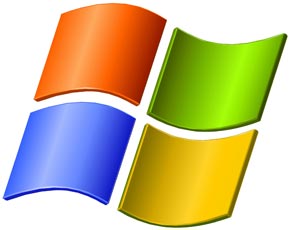In the second day of its annual TechEd developers conference in Amsterdam,Microsoft presented the case for Windows 8 in the enterprise.
Unlike its predecessor,Microsoft has introduced the concept of a runtime(RT)environment,available on PCs and system-on-chip(SoC)ARM-based devices.

So apps developed for x86 PCs will run on ARM-based Windows RT tablets and ultrabooks,Microsoft said.
Antoine Leblond,corporate vice-president of Windows Web Services at Microsoft,said:"There are 600 million licenses of Windows 7,but the OS was built on Windows 95."
Leblond outlined a number of changes driving the design of Windows 8.
Tablets and mobility
According to Leblond,tablets will outsell PCs next year and most devices will be battery powered.This changes how applications are designed,due to power usage constraints.
Referring to the popularity of tablet devices,Leblond added:"We don't have touch screens on PCs.But every PC manufacturer is bringing out touch screens."
This means enterprise software can make use of the Metro touch-interface in Windows 8.
During his presentation,Leblond showed an Intel i5-powered Samsung Series 5 tablet,which is capable of running Windows 8.
Demonstrating the Metro interface,Leblond said:"The start screen is a personalised dashboard,with tiles that have live information."
Leblond showed a Microsoft Dynamics CRM app running on the Samsung tablet,which supports the full Metro interface features like touch,swipe and zoom.The app used location-based services and camera features.
In terms of network support,Leblond showed a custom app from Vodafone that lets its customers check usage.The app loads on demand when the Vodafone SIM is inserted in the device.
Microsoft also demoed a version of the National Rail app,running on a laptop device.Here,the Metro interface can be used with keyboard short cross.
The touchpad on laptops also supports touch features in the Metro interface.There is also a full Windows 7 menu button,with shortcuts to commonly used applications and commands.
Enterprise features
To tie in with Windows 8,Microsoft will update its Visual Studio development tool.Leblond said:"You can build native Windows 8 apps using any language including Javascript."
Windows 8 uses the concept of Contracts,a programming features that allows developers to link into Windows services like search.Leblond said Contracts makes it easy for developers to add Windows features in their own apps.
Windows 8 includes Hyper-V built-in,allowing enterprise developers to run Windows 7 virtual machine.
For IT departments that want to separate home and work environments on the PC,Microsoft provides Windows To Go,which allows users to boot Windows directly from a USB memory stick.





